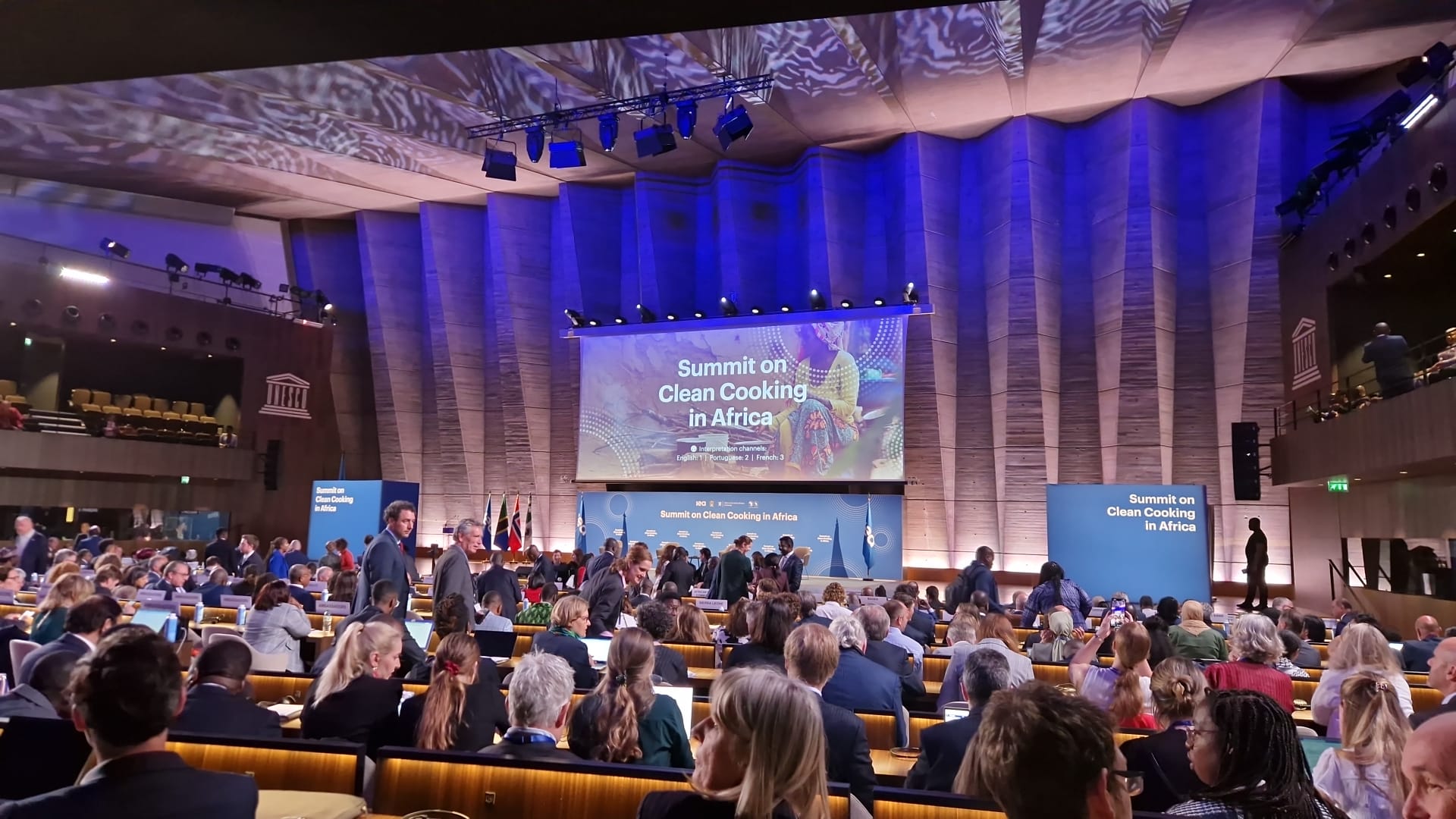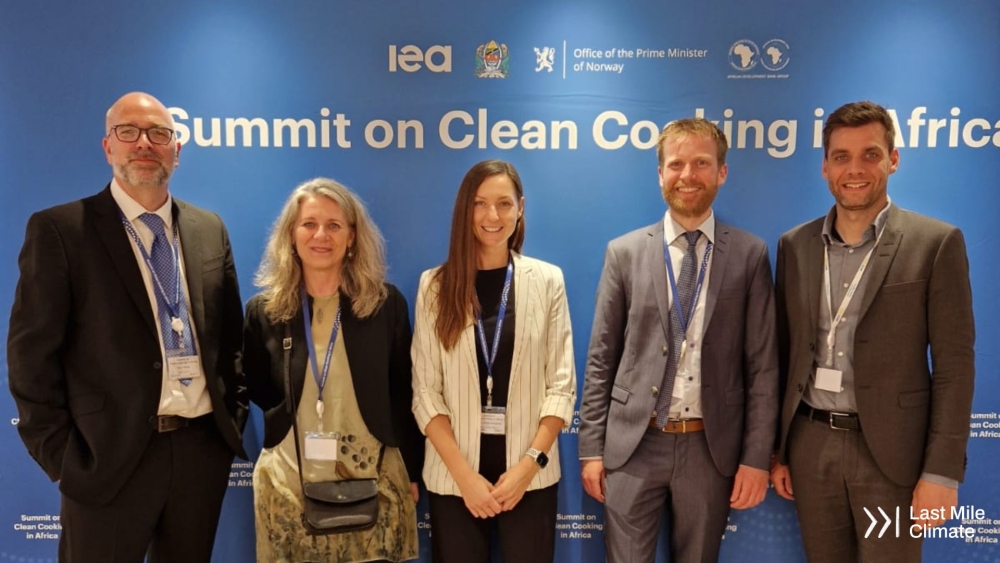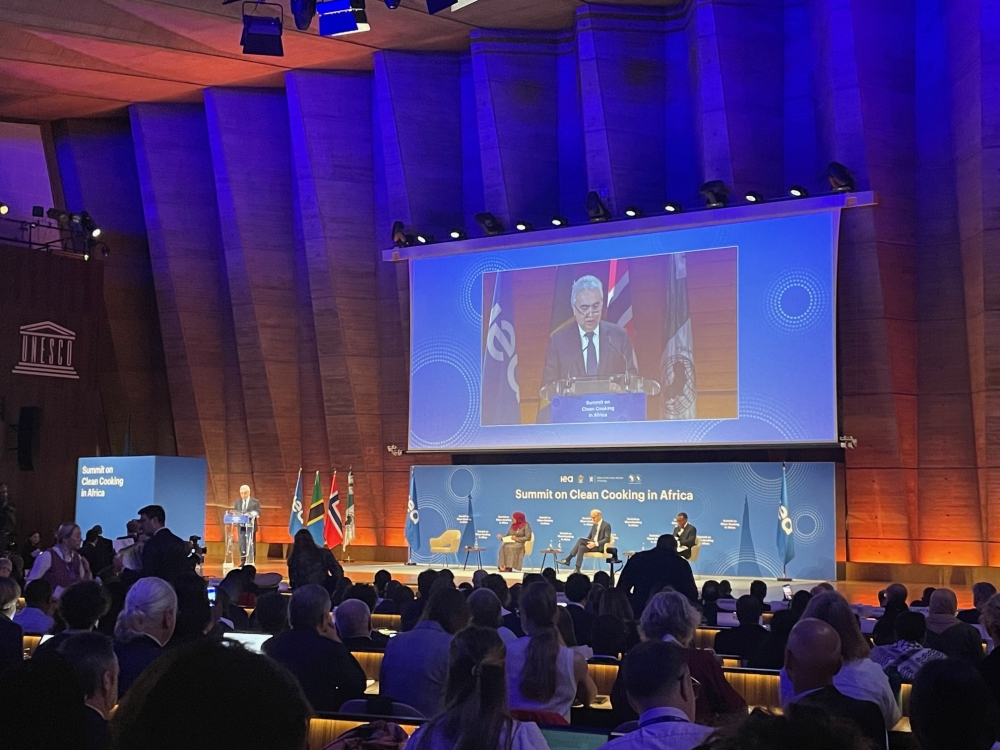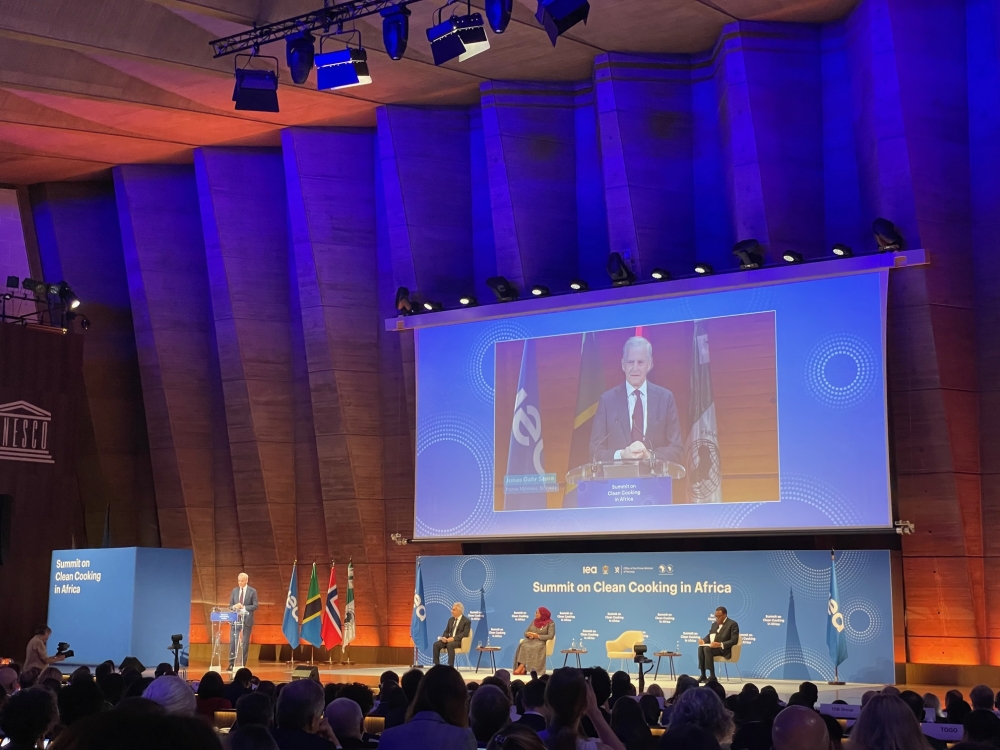In this section
In this section
On May 14th, the Summit on Clean Cooking in Africa organised by the International Energy Agency and chaired by the Executive Director Dr Fatih Birol brought together over 1000 delegates from governments, the private sector, development partners, international organisations, philanthropies, and civil society. All of them were there united by the shared goal of making 2024 a pivotal year for achieving universal access to clean cooking. The Summit was the largest-ever gathering with the exclusive focus on clean cooking, drawing participation from 55 countries, represented by 4 Heads of Government and 23 Ministers.
Countries, development institutions and companies pledged a total of $2.2 billion to finance access to clean cooking solutions in Africa and reduce the health and environmental risks related to harmful and polluting cooking methods currently relied on by over 2.3 billion people globally. The funding will be used to support the uptake of clean cooking stoves and equipment as well as for the development of electricity and gas infrastructures.
Among the most notable pledges were:
- The African Development Bank committing $2 billion to clean cooking over the next 10 years, pledged by President Dr Akinwumi Adesina (co-chair of the Summit)[1]
- Norway’s approximately $50 million pledged by Prime Minister Jonas Gahr Støre (co-chair of the Summit)
- Tanzania’s President Samia Suluhu Hassan (co-chair of the Summit) committed to continued support to policymaking to make sure that 80% of Tanzanians will be using clean cooking methods by 2030.
- European Commission’s executive vice president Maroš Šefčovič pledged $431 million for clean cooking activities and announced the launch of a regional clean cooking initiative for West Africa.
The GPA were represented at the Summit by Iwona Bisaga – the recently appointed Global Clean Cooking Lead at GPA Coordination Unit, and Mark Gibson, Head of the GPA Coordination Unit, with the wider humanitarian energy community also represented by NORAD, Mercy Corps, WFP, UNHCR, UNEP Climate and Clean Air Coalition (CCAC), Last Mile Climate, Pesitho, GIZ-EnDev and the Modern Energy Cooking Services (MECS) programme.
Read the high level advocacy message and political aims developed by GPA partners in relation to the IEA Summit. here
The Summit brought together a diverse group of stakeholders from across the energy sector all there to advocate for increased efforts towards facilitating faster, more effective and efficient clean cooking transitions in Africa. The recognition of the importance of clean cooking on national and international agendas on such a large stage attended by presidents and high-level country officials from both the Global South and the Global North makes for a meaningful, and potentially pivotal, moment for the clean cooking and the wider energy access sectors. Numerous media outlets globally have been covering the Summit over the last week and that in itself gives it more attention and visibility than we’d ever seen before in such a short timespan. At the Summit, more than 100 countries, international institutions, companies and civil society organisations also endorsed The Clean Cooking Declaration, pledging to make the issue a priority. While financial commitments were made, most of them coming from the private sector and the African Development Bank, the $2.2 billion is small portion of what the IEA estimates is needed to achieve universal access to clean cooking in Africa, namely $4 billion per year between now and 2030. Yet this could be the moment where both the private and the public sectors start taking drastic action which is urgently needed if we are to make meaningful progress. The hope is that the $2.2 billion pledged will unlock further funding to the sector, and will not only raise the profile of clean cooking as an important energy, health, gender and climate issue but will also give investors the confidence boost they need to channel not millions we’ve seen to date, but the billions that are required.
While there was an acknowledgment that we must recognise the particular importance of clean cooking in displacement settings and among other marginalised groups, more advocacy is needed as displaced communities face distinct challenges that call for tailored solutions, particularly regarding the political approaches towards the displaced and the (real or perceived) risks that investors fear, both of which inhibit faster progress. While we have seen an uptick in research focusing on energy access in displacement settings recently, including under the Roadmaps for Energy Access in Displacement Settings (READS) programme, the need for more evidence is still there to inform the design of clean cooking initiatives and the strategies of donors, development partners, humanitarian organisations and national governments - all of whom do and will continue to play a part in clean cooking transitions for the displaced and host communities alike.
The blog was written by Iwona Bisaga, Global Clean Cooking Lead for GPA Coordination Unit and NORCAP.
[1] The $2 billion over the next 10 years is in addition to the $2.2 billion pledged by other institutions during the Summit.
Last updated: 04/06/2024



